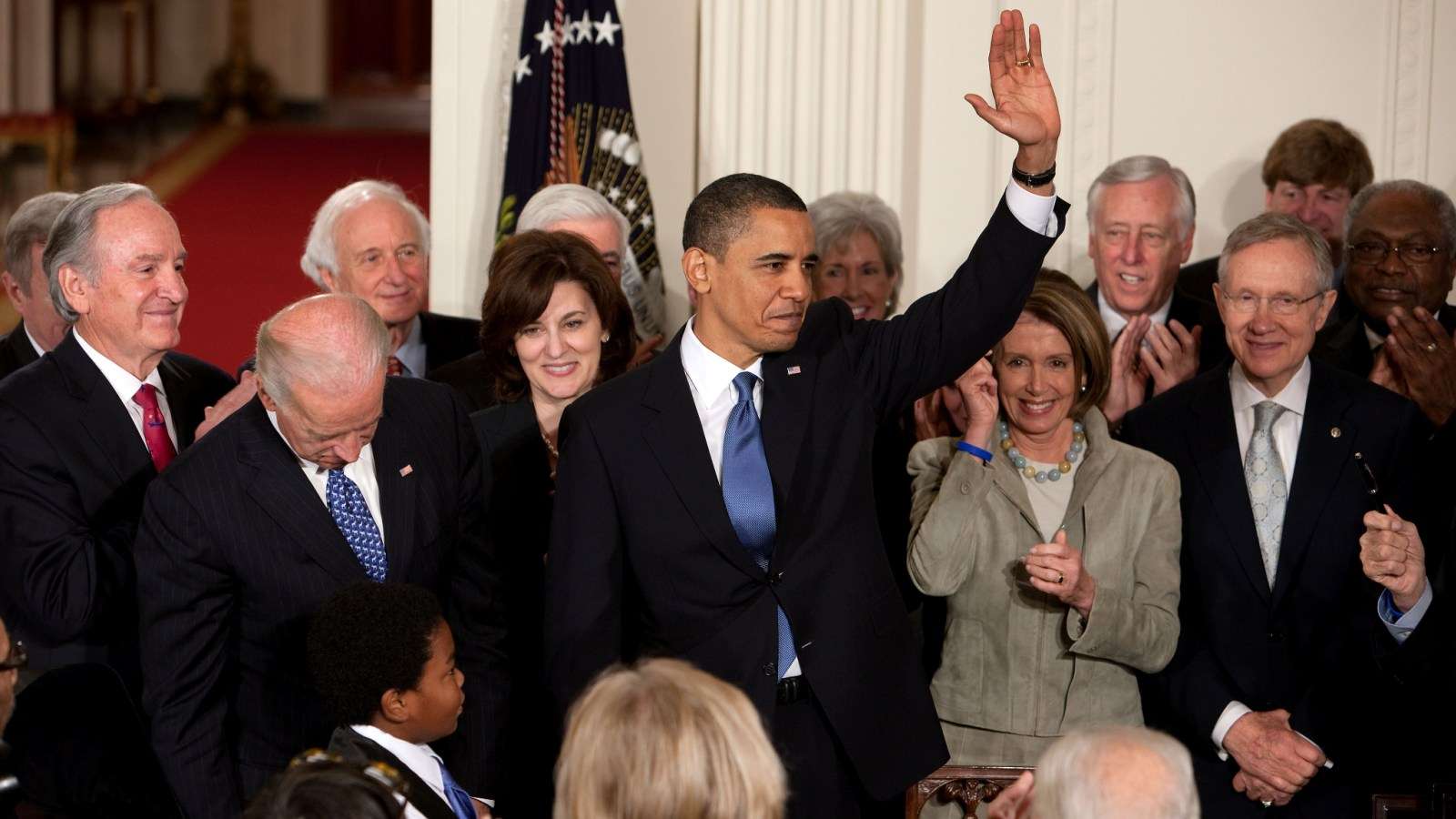Obamacare is Failing—and Hillary Clinton Doesn't Want to Talk About It
Another state health insurance regulator warns of impending collapse in the individual market.

On Friday, Minnesota Commerce Commissioner Mike Rothman became the second state insurance regulator in recent weeks to warn that their state's individual insurance market—which includes its health insurance exchange—is on the brink of collapse. In a press release, officials said that rates for the seven insurers operating in the state's individual insurance market would increase by between 50 and 67 percent. Those hikes were necessary to prevent a full-blown failure. "It's in an emergency situation—we worked hard and avoided a collapse," Rothman told Bloomberg News.
Just a few weeks earlier, Tennessee Insurance Commissioner Julie McPeak declared that the state's Obamacare exchange was "very near collapse." The state allowed two insurers to re-file requests for rate increases, eventually approving hikes of more than 40 percent, which McPeak said was necessary in order to stave off a meltdown.
The problems are widespready, although the extent and particulars of the problems vary by state. Many insurers have abandoned the exchange system in Arizona, leaving most counties to be served by only one carrier. In at least four other states— Alaska, Alabama, Wyoming and Oklahoma—only one insurer will sell in the exchange.
These issues are concentrated in the individual market. As Janet Trautwein, the head of the National Association of Health Underwriters, a trade group for insurance brokers, told The New York Times, "Employer markets are fairly stable, but the individual insurance market does not feel stable at all….In many states, the individual market is in a shambles."
The Obama administration has all but admitted that the law is unstable and unsustainable in its current form.
President Obama has called for the creation of a government-run health insurer to shore up competition in the exchanges, strongly suggesting that the law's scheme, which was touted as path to private insurance competition, is not working and not going to work.
Meanwhile, Andrew Slavitt, the acting administrator for the Centers for Medicare and Medicaid Services, which overseas the law, said in a New York Times report today that his agency is working to create "a stable, sustainable marketplace" in part by making additional payments to insurers for expensive beneficiaries. Just last week, however, the Government Accountability Office, a non-partisan federal watchdog, released a report finding that the Obama administration's decision to funnel billions to insurers to help cover the expense of high-cost patients was illegal. It says something about the shabby state that Obamacare's exchanges are in that a senior administration official is touting an expensive, illegal payout to insurers as a solution to the program's woes.
In any case, it is a solution that, judging by the health law's continuing struggles, does not seem to be working. And neither the law nor the supposed fixes that its backers hope to implement are exactly political selling points. As Byron York reports today, Hillary Clinton, the Democratic nominee for president and the standard bearer not only for her party but for defense of the health care law, has mentioned Obamacare just once in the course of sixteen speeches delivered over the last month—and that was only when President Obama was in the room.
Clinton's silence is telling. Crucial elements of Obamacare are on teetering on the brink of collapse, and the only solutions that its backers have on offer involve spending more public money and giving the government even greater power over health coverage and care. Is it any surprise she doesn't want to talk about it?


Show Comments (242)